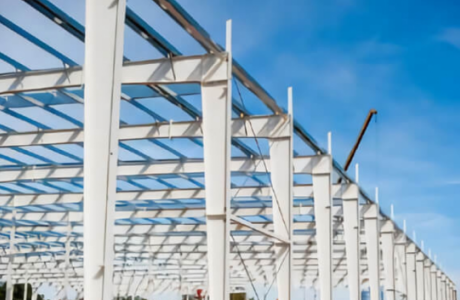What Are Industrial Steel Structures and Why Are They Essential?
Nov.10.2024

Industrial steel structures have become a cornerstone in modern construction, especially for businesses that demand durable, cost-effective, and versatile buildings. From factories to workshops, these structures offer a wealth of benefits that are transforming the way industries approach construction projects. But what exactly are industrial steel structures, and why should they be your top choice for industrial applications? This article dives into the details, covering the advantages, applications, and types of steel buildings that meet industrial needs.





